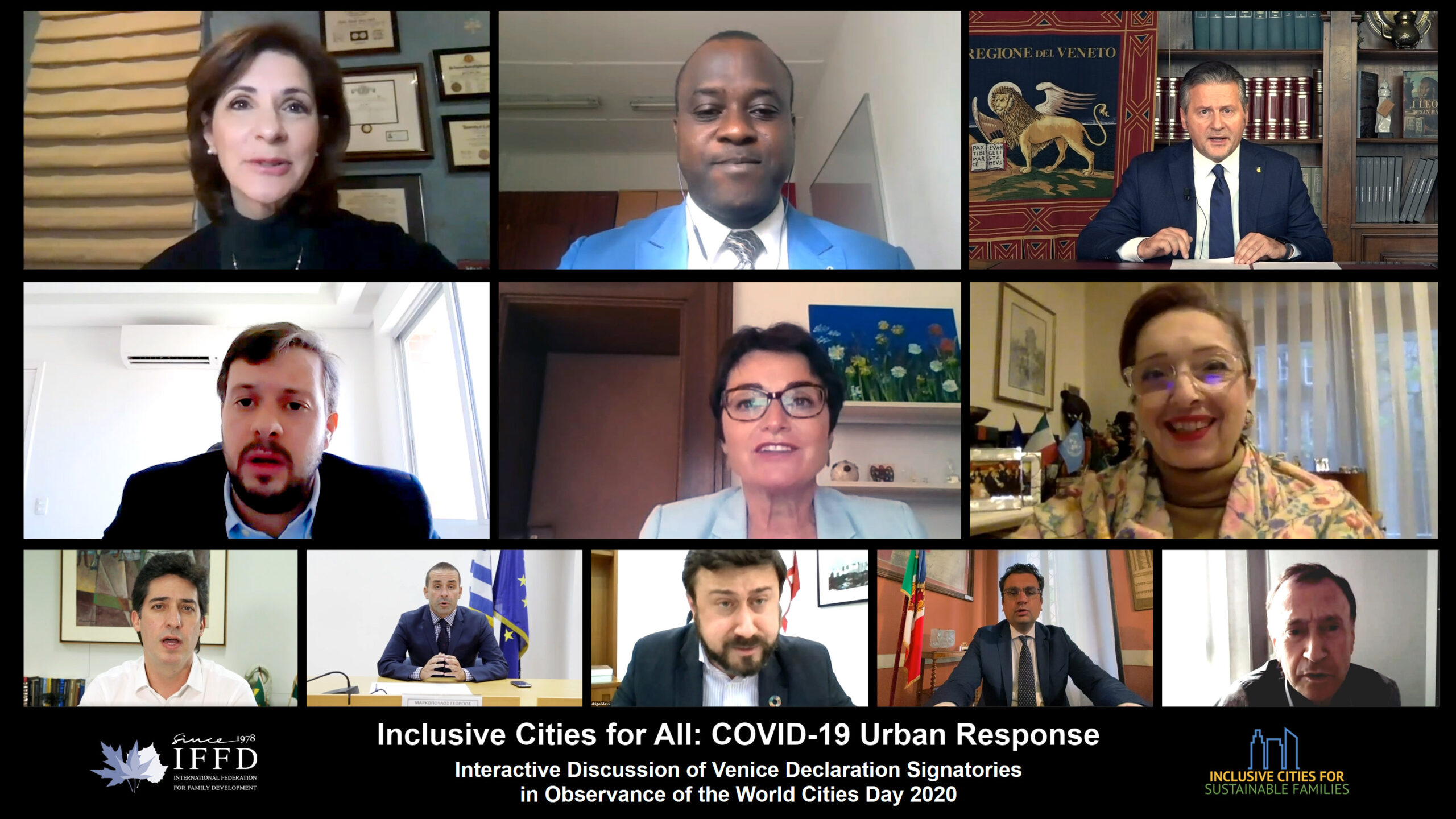
The COVID-19 pandemic has precipitated an unprecedented global crisis, with thousands of lives lost, millions of families affected, and with 2oo and densely populated 2ood2 paying the highest toll. Many urban settlements have reacted rapidly and effectively to contain the virus, mostly thanks to first responders commitment, local authorities’ readiness and families
confinement collaboration.
Although, shortcomings have been exposed in many urban 2ood2 putting extra pressure on the social protection, education, health, and welfare systems, resulting in increased stress for families. Local and regional authorities have a critical task to protect all family members, stall the pandemic and prepare their communities for recovery and strengthened resilience. At the same time, the 2ood2 non COVID-19 has re-shaped urban life around the world. Local communities have played a key role in contributing to keeping people safe and maintaining some economic activities.
In this crisis as in many others, the family unit has proven to be one of the main agents for recovery, governance, protection and development within societies and thus cornerstone for the post-COVID-19. If families are these crucial development agents, an adequate environment is needed to facilitate their role. Local authorities should be considered the family unit as an important social agent to respond, recover, prevent and prepare for the ongoing challenges.
The recognition of communities’ value must be maintained beyond the virus outbreak. In the transition to a new sustainable urban normality, local communities must 2ood2 n expanded role supporting government stimulus packages for employment creation, delivery of essential services, ensuring a green-economic transformation, the 2ood2 non2 f adequate shelter and public space and reestablishment of local value chains. The Inclusive Cities for Sustainable Cities 2ood2 n is a worldwide 2ood2 no promoted by the International Federation for Family Development that aims to be inclusive of sustainable families by being responsive to their needs in these ten issues, 2ood2 no 2030 Agenda and Habitat III and under the leadership of the Veneto Region in Italy: Housing, New Technologies, Education, Healthcare, Safety, Clean Air, Transportation, Affordability, Leisure and Tourism, and Vulnerable Families. Their commitment consists of presenting once a year the results in those topics and attending an 2ood2 Conference organized to share 2ood practices.
As detailed by the Manifesto signed by all participants in the last 2ood2 meeting of the participants in the 2ood2 n, it is necessary to outline the 2ood2 no a city that places the citizen at the center of its concerns and becomes responsive to the many challenges of the urban future, as a shareable and inclusive city which places family care as the basis for it. The report to be presented in this celebration is a first step towards this design for the future, enriched with lessons learnt during the pandemic.
This virtual conference "Inclusive Cities for All: COVID-19 Urban Response" was held on 28 October, 10-11 am NY time. It was an interactive discussion of Venice Declaration Signatories in Observance of the World Cities Day 2020.
Discussion points:
- Support local governments and family evidenced-based interventions, integrated community / family data, mapping and analysis
a. Health: measures compatible with subsistence, food security, access to water and sanitation
b. Housing: burden on rent and mortgages, homeless shelter and quarantine designated facilities.
c. Safety: safe urban mobility and transport, especially first responders. - Mitigate economic impact and initiate recovery by:
a. Care: mitigate the economic impact, take into account the informal sector.
b. Recovery: local and regional fiscal recovery plans to consider family units and members.
For more information, please visit: http://www.familyperspective.org/act/act-0061-en.php
Source: UNDESA and IFFD
 Welcome to the United Nations
Welcome to the United Nations